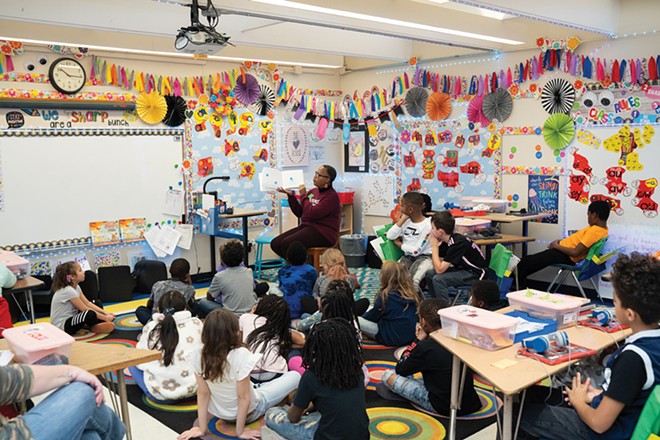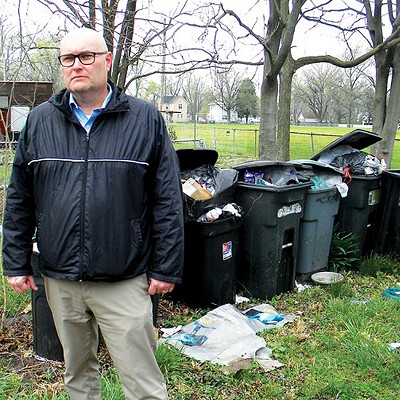
Donna Brown is a woman with a vision to have every child in Springfield learn to read.
The 62-year-old founder of iMagicNation is launching an outreach in January at Matheny-Withrow Elementary School to mentor children at the school that is underperforming in reading.
But her long-term dream is to build a literacy center on Springfield's east side.
"I describe myself as a word nerd. I'm one of those people who just loves to read. When I worked for District 186, I recruited volunteers to work with kids. ... I guess because of my personal interest, I created several literacy programs where volunteer tutors came in and worked with students on their reading. We called them reading volunteers or reading tutors."
After her position as a volunteer coordinator was eliminated, Brown founded iMagicNation, a nonprofit geared toward improving children's reading skills. Before the pandemic, she said her organization partnered with Black Hawk Elementary School for four years. But during the period of remote learning, the literacy mentoring partnership ended.
For the past two years, her organization has partnered with the Springfield Urban League to tutor children in reading at summer camps.
Now iMagicNation has purchased four lots on the northeast corner of 16th and Spruce streets in hopes of one day building a literacy center. But the building's construction comes with a $3.5 million price tag, Brown said. The group held its first fundraiser last month and raised $5,000.
"It starts with one donation at a time – one person buying into it at a time," said Calvin Allen, a coordinator for the Urban League. "And there's plenty of donors that would, I believe, buy into a quality program such as hers knowing the need. So, I think it can happen."
Improving reading skills is vital for ending the cycle of poverty many children find themselves born into, he added.
"If kids are struggling with reading – if you don't have about a third-grade reading level – by the time you're in high school, they'll be way behind," Allen said. "If you're not able to read, the chances of graduating (decrease) dramatically, and a large percentage of people who don't graduate end up being incarcerated. So, there's a direct correlation between reading and incarceration.
"Introducing kids to the joy of reading is critical. And, (iMagicNation) does it with a passion. They do it with care and love. They give kids opportunities to select what book they want to read. But they do more than that. They talk with them one-on-one."
Brown said she sees an enormous disparity in resources available between the city's more affluent west side and its east side.
"It's not that the kids on the east side are not capable of learning," she said. "It is that they don't have the resources or the parents with the wherewithal or the financial resources to put them in private tutoring," she said.
Anne Brewster, director of the Children's Dyslexia Center of Springfield, said the capital city is not unique in the disparity of reading test scores between wealthier and poorer neighborhoods.
"I don't think that Springfield particularly is doing something really wrong and everybody else is getting it right. I think it's a problem that exists across our country, and I think people are becoming increasingly aware. I'm not sure that you can point to one root cause," Brewster said.
"If you could point to one root cause, then we would have solved this problem by now. I think it's very complex. There's a lot of variables that have led us to where we are now, and it's going to be a complicated solution to the problem as well," she said.
But Brown said one solution may be to bring more resources closer to where poor children live.
"If we really want to get kids involved and reading, we have to go to where the kids are, because they can't come downtown or wherever."
Scott Reeder, a staff writer for Illinois Times, can be reached at [email protected].



















